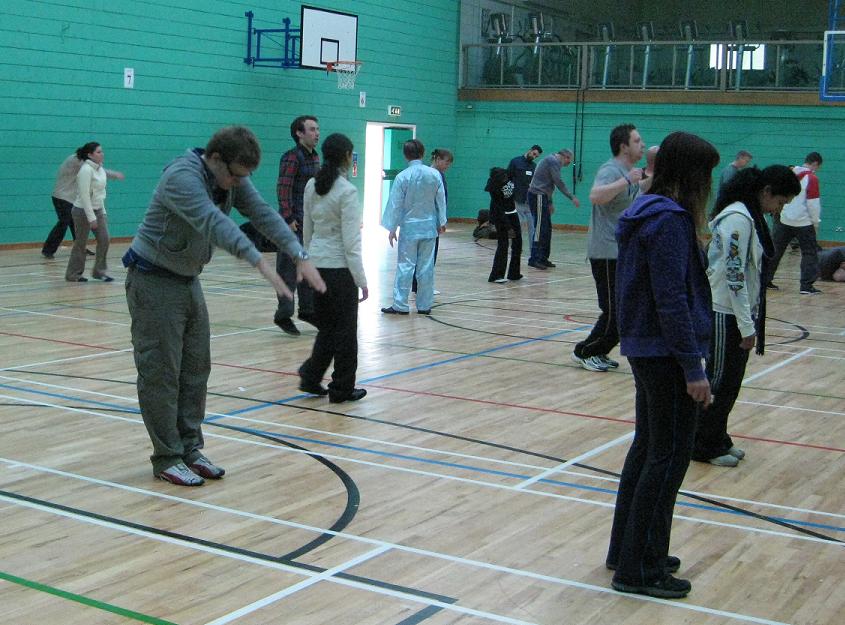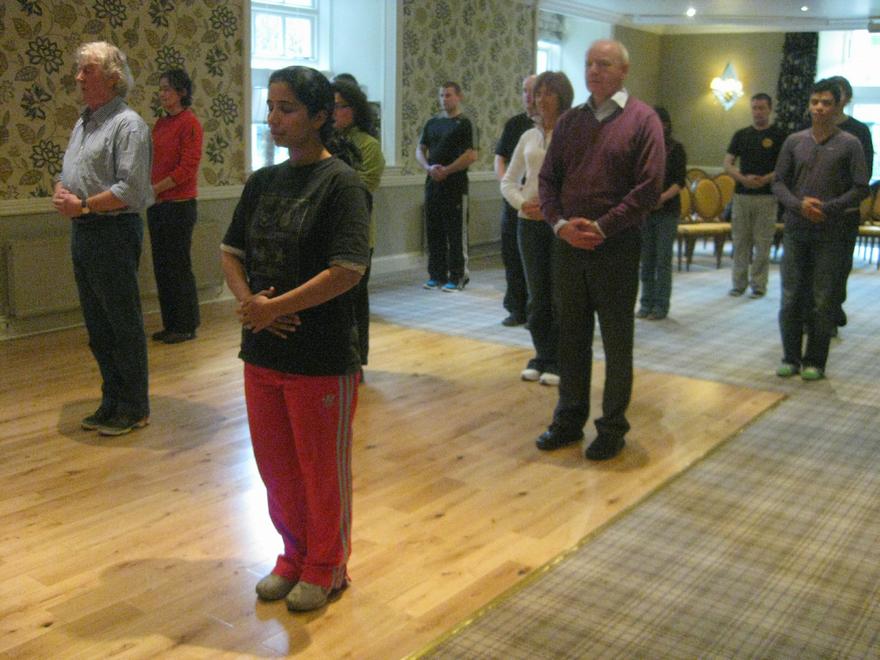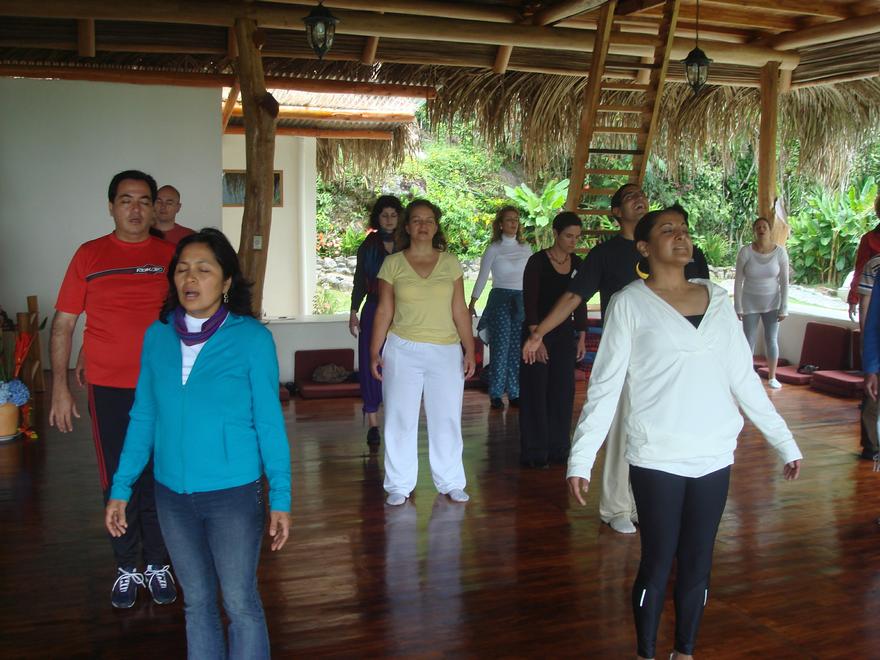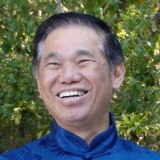WHEN TO CLEANSE, BUILD OR NOURISH

The cleansing process
Question
There are many stages of development. At any point during his development, how can a practitioner know when or whether to cleanse, build and/or nourish?
The effects of cleansing can sometimes be quite strong. How can a practitioner know that such effects are caused by cleansing rather than deviation in his practice, and thus avoid worrying unnecessarily?
Sifu Andrew Barnett
Answer
There are numerous ways to classify ones progress in chi kung training.
One helpful way is to classify the progress as cleansing, building and nourishing. The cleansing process clears blockage, overcoming pain and illness. The building process increases the volume and flow of energy, giving a practitioner vitality and longevity. The nourishing process enhances the quality of energy, giving a practitioner mental freshness and spiritual joys.
While the progress is in ascending order from cleansing to building to nourishing, all the three aspects also operate at the same time. In other words, when a practitioner cleanses, he also builds and nourishes, and vice versa.
Another way to classify the progress is medical and health, peak performance, and spiritual cultivation. This classification corresponds to the former classification of cleansing, building and nourishing, except that the former focuses on the operation of chi flow whereas the latter focuses on its result.
As a result of cleansing, one overcomes illness and has good health. As a result of building, he attains peak performance. As a result of nourishing, he accomplishes spiritual fulfillment.
These processes operate spontaneously, i.e. wu-wei, and in this order of development unless a practitioner directs it otherwise.
In other words, if a practitioner is sick but at the same time he wants to do well in his work, his chi kung practice will naturally enable him to overcome his illness first before enable him to attain peak performance, i.e. it naturally cleanses before it builds.
He may, if he has the necessary skills, direct his chi to build instead of to cleanse, i.e. for peak performance instead of for overcoming illness, but unless there is a good reason for this ad hoc purpose, it is unwise to do so.
So, it is best to let chi do its work on its own, conceptualized as wu-wei or spontaneity, as it will always work for our best benefit.
We can also know whether chi is cleansing, building or nourishing from direct experience, just as when we drink water we know from direct experience that it is flowing down our throat, collected at our stomach or quenching our thirst. Someone who had no experience of chi, just as no experience of drinking water, would not know the difference.

The building process
There are also signs to indicate the processes. When chi is cleansing, we may feel it flowing inside us and we may sometimes feel some pain, which we call good pain as we know it is doing us good. When chi is building, we feel it charging up every part of our body, and we feel stronger and full of vitality. When chi is nourishing us, we feel it is soothing and sometimes expanding, and we become peaceful and happy.
However, if for some particular reasons he wishes to cleanse, build or nourish, he can tell the need as well as the result from direct experience. If he accidentally sustains a muscular sprain, for example, he knows from direct experience his need to direct chi to cleanse his blockage that causes the sprain. He also knows from direct experience that as a result of the cleansing he feels he has recovered from his injury.
The effects of cleansing can sometimes be too strong for comfort, in which case we refer to it as over-cleansing. While cleansing causes good pain, over-cleansing causes bad pain, which may be harmful. Again we depend on direct experience to tell whether a pain is good or bad, just as we depend on our experience to tell whether the sour taste of an orange is the result of its being delicious or rotten.
There is a thin line of difference between over-cleansing and deviation. Indeed, over-cleansing may be regarded as deviation, as the practice has deviated from being good to bringing harm.
Nevertheless, we can often tell whether a deviation is due to over-training even when the training is correct, or wrong training even when a practitioner has trained for a short time.
If he follows the instructions of the exercise carefully, like relaxing and not thinking of anything, but the effect is too strong for comfort relative to the time he has put into his training, it is over-training. If he ignores instructions, like keeping his mouth close and thinking of various thoughts, the effect is unpleasant even when he has put in a short time in his training, it is wrong training.
He may also tell the difference between over-training or over-cleansing from wrong training by examining the result of the training. If he has been feeling good all the way, then feels miserable as if with no reasons, it is likely to be over-training or over-cleansing. Toxic waste is coming too fast than his body can dispose it. He should slow down his training. If he feels miserable right at the start or whenever he trains, and the pain is often sharp, it is likely to be wrong practice. He should correct his techniques and skills.
Despite the explanation here, most students may not have the knowledge and experience to tell the difference between over-cleansing or wrong practice, or whether his chi flow is cleansing out deep-rooted problem that he himself many not know. It is best to personally let a competent teacher see his practice and its result.

The nourishing process
The questions and answers are reproduced from the thread Stages of Cleansing, Building and Nourishing: 10 Questions to the Grandmaster in the Shaolin Wahnam Discussion Forum.

Click here to find out more about the UK Summer Camp
LINKS
